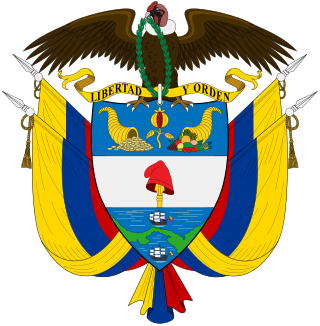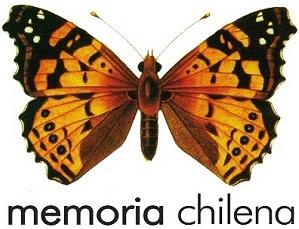Related Research Articles

A database right is a sui generis property right, comparable to but distinct from copyright, that exists to recognise the investment that is made in compiling a database, even when this does not involve the "creative" aspect that is reflected by copyright. Such rights are often referred to in the plural: database rights.
Official texts, as defined in Article 2(4) of the Berne Convention for the Protection of Literary and Artistic Works, are texts of a legislative, administrative and legal nature and the official translations of such texts.

Lesbian, gay, bisexual, and transgender (LGBT) rights in Chile have advanced significantly in the 21st century and are now quite progressive.
Jorge Cortell is an activist and commentator known for his opposition to the concept of Intellectual Property. He was forced to resign as visiting professor of the Polytechnic University of Valencia (UPV) after delivering a talk in the university where he defended copyleft and P2P networks, and criticized copyright and patents, defying pressure from the dean and the MPAA who tried to censor his talk.
Spanish copyright law, or authors' right law, governs intellectual property rights that authors have over their original literary, artistic or scientific works in Spain. It was first instituted by the Law of 10 January 1879, and, in its origins, was influenced by French authors' right law and by the movement led by Victor Hugo for the international protection of literary and artistic works. As of 2006, the principal dispositions are contained in Book One of the Intellectual Property Law of 11 November 1987 as modified. A consolidated version of this law was approved by Royal Legislative Decree 1/1996 of 12 April 1996: unless otherwise stated, all references are to this law.

The age of consent for sexual activity refers to an age at or above which an individual can engage in unfettered sexual relations with another who is of the same age or older. This age varies by jurisdiction across South America, codified in laws which may also stipulate the specific activities that are permitted or the gender of participants for different ages. Other variables may exist, such as close-in-age exemptions.

Argentine nationality law regulates the manner in which one acquires, or is eligible to acquire, Argentine nationality. Nationality, as used in international law, describes the legal methods by which a person obtains a national identity and formal membership in a nation. Citizenship refers to the relationship between a nation and a national, after membership has been attained. Argentina recognizes a dual system accepting Jus soli and Jus sanguinis for the acquisition of nationality by birth and allows foreign persons to naturalize.
Taringa! is an Argentine-based social networking site geared toward Hispanophone users.

Colombian nationality is typically obtained by birth in Colombia when one of the parents is either a Colombian national or a Colombian legal resident, by birth abroad when at least one parent was born in Colombia, or by naturalization, as defined by Article 96 of the Constitution of Colombia and the Law 43-1993 as modified by Legislative Act 1 of 2002. Colombian law differentiates between nationality and citizenship. Nationality is the attribute of the person in international law that describes their relationship to the State, whereas citizenship is given to those nationals that have certain rights and responsibilities to the State. Article 98 of the Colombian constitution establishes that Colombian citizens are those nationals that are 18 years of age or older. Colombian citizens are entitled to vote in elections and exercise the public actions provided in the constitution.

Decree Law 4161/56 was an Argentine government decree designed to suppress Peronist sentiment among the Argentine people. Enacted on 5 March 1956, six months after the 1955 overthrow of President Juan Perón in the Revolución Libertadora, the decree instituted a wide-ranging ban on any "affirmation of Peronism" under the government of Pedro Eugenio Aramburu.

Memoria Chilena is a Chilean cultural website which, according to its own words, "offers investigations and documents related to key topics which make up the Chilean identity, accessible through the areas of history, literature, social sciences, music, and visual arts." Memoria Chilena is, also, a virtual library, which preserves material from the Biblioteca Nacional de Chile and other institutions from the Dirección de Bibliotecas, Archivos y Museos (DIBAM).

A collective work is a work that contains the works of several authors assembled and published under the direction of one natural or legal person who owns the copyright in the work as a whole. Definitions vary considerably from one country to another, but usually treat ownership of the work as a whole as distinct from ownership of the individual contributions, so the individual authors may retain the right to publish their work elsewhere. It is common for publication of articles on the Internet, when isolated from the context of the overall work, to be considered to be outside of the standard agreement between the author and the owner of the collective work.
The Spanish Newspaper Publishers' Association was a trade association for Spanish newspaper publishers based in Madrid, Spain.
Hiram Meléndez-Juarbe was a member of the Puerto Rico Commission on Civil Rights. He is a Professor and former Associate Dean at the University of Puerto Rico School of Law, where he teaches constitutional law, privacy and technology, copyright and intellectual property topics, cyberlaw, administrative law and seminars on constitutional law and cyberspace. He is founder of the UPR New Technologies, Intellectual Property and Society Clinic and co-legal lead of Creative Commons Puerto Rico. He graduated from the University of Puerto Rico, Harvard University and New York University. He is co-founder of the blawg derechoalderecho.
The Convention on the Exercise of Liberal Professions of 1939 is a treaty signed in the Second South American Congress of Private International Law of 1939 and 1940 in Montevideo, by which allows holders of an academic degree obtained in a public education institution of a state party to validate their degrees in another state party provided that the degree keeps a reasonable equivalence with the corresponding one in the second state. This treaty updates the provisions of the Convention on the Exercise of Liberal Professions of 1889, and binds Argentina, Paraguay and Uruguay.
The Convention on the Exercise of Liberal Professions of 1889 is a treaty signed in the First South American Congress of Private International Law of 1889 in Montevideo, by which allows holders of an academic degree obtained in a public education institution of a state party to automatically validate their degrees in another state party without any requirement other than displaying the degree and prove that its owner is the one who is asking the validation. This treaty binds Argentina, Bolivia, Colombia, Ecuador, Paraguay, Peru and Uruguay.
Nicaraguan nationality law is regulated by the Constitution, the General Law for Migration and Foreigners, Law No. 761 and relevant treaties to which Nicaragua is a signatory. These laws determine who is, or is eligible to be, a citizen of Nicaragua. The legal means to acquire nationality and formal membership in a nation differ from the relationship of rights and obligations between a national and the nation, known as citizenship. Nicaraguan nationality is typically obtained either on the principle of jus soli, i.e. by birth in Nicaragua; or under the rules of jus sanguinis, i.e. by birth abroad to a parent with Nicaraguan nationality. It can also be granted to a permanent resident who has lived in the country for a given period of time through naturalization or for a foreigner who has provided exceptional service to the nation.
Salvadoran nationality law is regulated by the Constitution; the Legislative Decree 2772, commonly known as the 1933 Law on Migration, and its revisions; and the 1986 Law on Foreigner Issues. These laws determine who is, or is eligible to be, a citizen of El Salvador. The legal means to acquire nationality and formal membership in a nation differ from the relationship of rights and obligations between a national and the nation, known as citizenship. Salvadoran nationality is typically obtained either on the principle of jus soli, i.e. by birth in El Salvador; or under the rules of jus sanguinis, i.e. by birth abroad to a parent with Salvadoran nationality. It can also be granted to a citizen of any Central American state, or a permanent resident who has lived in the country for a given period of time through naturalization.
References
- ↑ Argentina WIPO, 2013. Retrieved 2 September 2013.
- ↑ Constitución Nacional - Artículo 17 Archived 2013-04-12 at the Wayback Machine (in Spanish)
- ↑ Proyecto Archived 2012-08-05 at archive.today (in Spanish)
- 1 2 3 "PROPIEDAD INTELECTUAL REGIMEN LEGAL". Informacion Legislativa. 26 September 1933. Retrieved 5 December 2023.
- ↑ "PROPIEDAD INTELECTUAL Ley 26.570 Modifícase la Ley Nº 11.723". Informacion Legislativa. Retrieved 5 December 2023.
- ↑ "Ley de Propiedad Intelectual" (PDF). 26 September 1933. Retrieved 5 March 2024.
